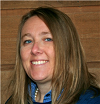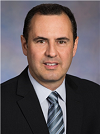- Back to Ruminant Nutrition Symposium
27th Annual Florida Ruminant Nutrition Symposium, February 15-17, 2016
Speaker Biographies
|
Dr. Mike Van Amburgh is a Professor in the Department of Animal Science at Cornell University where he has a dual appointment in teaching and research. His undergraduate degree is from The Ohio State University and his PhD is from Cornell University. He teaches multiple courses and works extensively with the Dairy Fellows Program, advises approximately 50 undergraduate students and is the advisor for the Cornell Dairy Science Club. A major focus of Mike’s research program for the last 14 years has been the nutrient requirements of dairy calves and heifers and aspects of endocrine control of developmental functions such as mammary development and puberty. A major focus of his current work is whole animal and ruminal nitrogen metabolism and regulation of milk protein synthesis and the interaction between forage and feed chemistry, rumen function and nutrient supply. He currently leads the development of the Cornell Net Carbohydrate and Protein System, a nutrition evaluation and formulation model used by over 2,000 professionals worldwide and through that effort is focused on enhancing the efficiency of nutrient use by ruminants to improve the environmental impact of animal food production. He has authored and co-authored over 50 peer review articles and many conference proceedings and is the recipient of several awards including the American Dairy Science Associate Foundation Scholar Award, the Land O’Lakes Teaching and Mentoring Award from ADSA, the AFIA Award for Research and the CALS Professor of Merit Award. |
|
Dr. Sha Tao is an Assistant Professor in the Department of Animal and Dairy Sciences at the University of Georgia. He is originally from Kaifeng, China. He obtained his BS in Agriculture in 2004 and M.S. in Animal Sciences in 2007 at the Henan University of Technology, China where he studied feed technology of non-ruminants. Sha completed his PhD in 2012 at the University of Florida in the Animal Molecular and Cellular Biology program under the supervision of Dr. Geoffrey Dahl. After graduation, he kept working in the same area as a post-doctorate associate at the University of Florida. Sha’s PhD and post-doctorate research focused on the effect of heat stress during the dry period on the mammary gland development, metabolic adaptations to lactation, and calf performance. In 2014, he moved to the University of Georgia at Tifton, GA as an Assistant Professor of heat stress physiology in dairy cattle. At Tifton, Sha keeps an active program to research the impact of heat stress on the cow’s metabolic responses, mammary gland development and performance at various stages of her life cycle. |
|
Dr. William Seymour is a Ruminant Technical Manager for Novus International. He is responsible for providing technical support for Novus products including Alimet, MFP, Mintrex chelated trace minerals and Agrado Plus antioxidant blend. He has prior experience as a dairy and ruminant nutritionist with Southern States and Tennessee Farmers Cooperatives, as Technical Services Manager for Roche Vitamins/DSM and as Manager of Dairy and Livestock Research for Agway and Cooperative Research Farms. He joined Novus in 2014. He received a B.S. in Animal Science from Cornell University and a Masters and Ph.D. in dairy and animal sciences from Virginia Tech. He resides in Ashland, VA with his wife Erin. They have two adult children Andrew and Grace Seymour. |
|
Dr Stephen M. Emanuele is a senior scientist and technical advisor for Quality Liquid Feeds. Dr. Emanuele received his BSc degree in Animal Sciences from the University of Rhode Island, the MSc degree in Dairy Science from the University of Maryland, and the PhD degree in Animal Sciences from the University of Florida. Dr. Emanuele has been working in the animal nutrition industry for over 26 years and currently he is responsible for leading the dairy research program at Quality Liquid Feeds. At QLF, he is responsible for training dairy field technical specialists and district sales managers, providing technical service to consultants, nutritionists, veterinarians and large dairy operations, conduct field experiments, and develop new products based on market needs. His most recent work was an analysis of data from 27 research publications to determine the optimal concentration of sugar, starch and soluble fiber in the dairy cow diet to maximize the production of milk components. |
|
Dr. Monty Kerley is a Professor of Animal Sciences in the Division of Animal Sciences at the University of Missouri. Dr. Kerley a BS from Southern Illinois University-Carbondale, and the MSc and PhD degrees from the University of Illinois-Urbana. His research is focused upon understanding nutritional and biological influences on beef cattle efficiency. His laboratory is studying relationships between mitochondrial respiration and metabolic efficiency of cattle. His laboratory is also conducting research to determine optimum amino acid to energy ratios that maximize gain efficiency and optimum degradable protein levels that maximize microbial efficiency in the rumen, which minimizes nitrogen waste, allows roughage removal from concentrate diets, and reduces waste and gas excretion. This research involves modeling bacterial flow from the rumen and developing empirical equations that optimize diet formulation for animal performance. Dr. Kerley is also conducting research evaluating by-products for beef feeding applications. Dr. Kerley is faculty coordinator of University of Missouri Beef Research and Teaching Farm and University of Missouri Feedmill. He teaches undergraduate ruminant nutrition, graduate ruminant nutrition, and graduate nutrition seminar. During his career at University of Missouri, Dr. Kerley has trained Doctorate and Masters students, has published referred articles, book chapters and abstracts, and has been awarded patents. He has directed and participated in externally-funded research. Dr. Kerley has received the AFIA Ruminant Nutrition Award, CAFNR Outstanding Researcher Award, and Gold Chalk Award in Graduate Teaching. |
|
Dr. Amy Radunz is an Assistant Professor in the Department of Animal and Food Science at the University of Wisconsin River Falls. She earned her BS and MSc degrees at North Dakota State University. After earning her MSc, she worked in academic positions at Washington State University and The Ohio State University in the area of beef cattle production focused on extension, research and teaching. She then received her PhD degree from The Ohio State University in the area of ruminant nutrition and meat science. Dr. Radunz then took a faculty position at University of Wisconsin-Madison as the state’s Beef Cattle Extension Specialist. In 2012, she moved to the University of Wisconsin-River Falls in a teaching position where she primarily teaches classes in beef cattle production and livestock evaluation. Her research has focused in the areas of late gestation nutrition impact on offspring performance and carcass composition and nutrition during early pregnancy on conception rates in beef cattle. |
|
Dr. Charles Staples is a Research Foundation Professor in the Department of Animal Sciences at the University of Florida. Charlie earned his Animal Science degrees at New Mexico and Illinois. He was hired by the University of Florida as a dairy cattle nutritionist and has served at the rank of Professor since 1995. He teaches both undergraduate and graduate level nutrition courses. His research areas focus on the effects of dietary nutrients on production and reproductive performance of lactating dairy cows and on improving forage utilization by dairy animals. Based upon his research, Staples was the recipient of the American Feed Industry Association Award and the Nutrition Professionals Applied Dairy Nutrition Award from the American Dairy Science Association and a University of Florida Research Foundation Professorship. |
|
Dr. Kevin Harvatine is an Associate Professor in nutritional physiology at Penn State University. He received his BS in Animal Sciences from Penn State, the MSc degree in dairy cattle nutrition from Michigan State University and the PhD degree in nutritional physiology from Cornell University. Kevin’s research integrates traditional ruminant nutrition and modern molecular biology approaches to investigate the regulation of metabolism and develop dietary intervention strategies to improve dairy production. Specific research objectives include investigation of dietary factors that modify ruminal fatty acid biohydrogenation, regulation of synthesis of milk components, and basic regulation of lipid synthesis with the continual goal of developing feeding strategies to improve the efficiency and performance of dairy cows. |
|
Dr. Adam Lock is an Associate Professor in the Department of Animal Science at Michigan State University. Originally from the United Kingdom, Dr. Lock received his PhD from the University of Nottingham and completed a post-doctorate at that institution as well as at Cornell University. He had a research and teaching appointment at the University of Vermont from 2006 to 2009 before moving to his current research and extension appointment at Michigan State University in the fall of 2009. Dr. Lock has developed his expertise in ruminant nutrition and physiology. His research and extension programs focus on both dairy production and human nutrition and health, and the interface between these two disciplines. The central theme is fatty acid digestion and metabolism in the dairy cow and the impact of bioactive fatty acids on animal production and human health. He is recognized for his ability to communicate to many sectors, from dairy farmers to dietitians and was awarded the 2011 American Dairy Science Association Young Scientist Award, which recognizes outstanding research by a young dairy scientist during the first 10 years of their professional career. |
|
Dr. Galen Erickson is the Nebraska Cattle Industry Professor of Animal Science in the Department of Animal Sciences at the University of Nebraska, Lincoln. He received his BSc degree in Animal Sciences in 1995 from the Iowa State University, and the MSc (1997) and PhD (2001) degrees from the University of Nebraska. Galen has a very active research program and during his tenure at the University of Nebraska he has supervised 17 MSc and 16 PhD students. The main research area is beef cattle nutrition and health. Particular emphases are placed on incorporation of alternative feeds into beef cattle diets, improving yearling stocker production systems, and methods to reduce microbial shedding in feeder cattle, and methods to improve efficiency in beef cattle production. |
|
Dr. Tara Felix grew up on a small hobby farm in Northwest Pennsylvania. She attended Penn State University and graduated in 2006 with her bachelor’s degree in Animal Biosciences. She went south for some warmer weather and a chance to study with world renowned mineral nutritionist, Dr. Lee McDowell. Upon successful defense of her thesis (entitled “Effects of dietary aluminum source and concentration on mineral status of feeder lambs”), Tara graduated from the University of Florida with her master’s degree in 2008. Pursuing her passion for beef cattle, Dr. Felix traveled north again, really just following the great football, to The Ohio State University. There she spent 3 years writing her dissertation with Dr. Steve Loerch on “Eliminating barriers to increased distillers grains use in ruminant diets.” Upon graduation Dr. Felix accepted a position at the University of Illinois at Urbana-Champaign. At IL, she spent 4 years and obtained over a million dollars to fund her research investigating the effects of alternative feeds on growth performance and ruminal metabolism of beef cattle. In January 2016, Dr. Felix rejoined the faculty at her first alma mater, Penn State University, in a 25% teaching and 75% extension appointment. As part of her extension appointment, she plans to continue her applied research on feed additives and other technologies used to promote beef cattle performance and improve nutrient digestion, and on novel feed ingredients. |
|
Dr. Shawn S. Donkin received the BSc degree from McGill University (Montreal) in 1982 and worked in the feed industry and as a dairy herd manager before pursuing graduate education. He earned an MSc degree in Dairy and Animal Science from The Pennsylvania State University in (1987) and a PhD in Dairy Science from the University of Wisconsin- Madison (1992). He has been a member of the faculty of Purdue University since 1995 was promoted to Professor of Animal Sciences (2006). Dr. Donkin has developed an internationally-recognized research program to determine the control of liver function and importance to food animal production, animal well-being, and human health. This research, which is both applied and basic in scope, has resulted in feeding recommendations for optimal health and productivity in dairy cattle and has created knowledge of the underlying biology of nutrient metabolism. Dr. Donkin’s laboratory was among the first to describe the molecular events that control glucose and nitrogen metabolism in dairy cattle and developing calves. Ongoing fundamental studies explore the role of nutrition, physiological changes, and environmental stressors on genes critical to health and productivity. Ongoing applied nutrition studies evaluate alternative energy and protein feeds for transition and lactating cows. Dr. Donkin has mentored 10 PhD students, 12 MSc students, and 2 postdoctoral fellows and authored over 55 referred publications, 90 abstracts, 8 extension publications, and 4 book chapters. He teaches courses in Ruminant Nutrition and Physiology, Dairy Cattle Management and Nutritional Biochemistry and Physiology. |
|
Dr. Laura L. Hernandez is an Assistant Professor in the Dairy Science Department at the University of Wisconsin-Madison. She received her PhD in 2008 from the University of Arizona under the direction of Dr. Bob Collier. Her area of research has focused on how serotonin controls the mammary gland and various aspects of lactation. Dr. Hernandez combines basic research from the cell to whole-animal level in a variety of mammalian species to broaden the focus on the importance of the mammary gland and its contributions to and regulation of a successful lactation in dairy cattle. The outcomes of her novel research are aimed at demonstrating the presence of factors (specifically serotonin) produced within the mammary gland that can control the animal’s physiology while lactating, particularly during the transition period when cows are the most metabolically and physiologically challenged. She specifically focuses on the interaction of serotonin and calcium metabolism during the transition period. Her research has determined that serotonin is an important regulator of mammary gland and maternal calcium homeostasis during lactation. |
|
Dr. José E.P. Santos is a Research Foundation Professor in the Department of Animal Sciences at the University of Florida where he conducts research and extension in dairy cattle nutrition and reproduction. José earned his DVM degree from São Paulo State University in Brazil in 1992, completed the MSc and PhD degrees in 1995 and 1997 at the University of Arizona, and a clinical residency in Dairy Production Medicine in 2000 in the School of Veterinary Medicine at the University of California Davis. He spent 8 years as a faculty member with clinical and research responsibilities in the Department of Population Health and Reproduction in the School of Veterinary Medicine at the University of California Davis before moving to the University of Florida in 2008. José is a member of the committee for the National Research Council on nutrient requirements for Dairy Cattle. He has authored and co-authored 163 peer-reviewed manuscripts in the scientific literature, and trained 7 clinical residents in dairy production medicine, and has been the major professor of 9 PhD and 13 MSc students, co-major professor of 7 visiting PhD students, received 7 sabbatical visitors and 92 visiting students. His primary research efforts focus on the interface between nutrition and reproduction and methods to improve postpartum health and fertility of dairy cows. |













